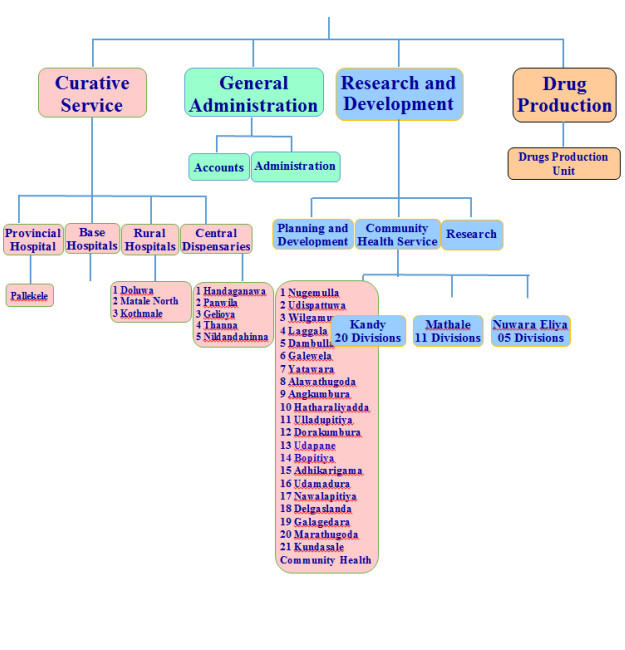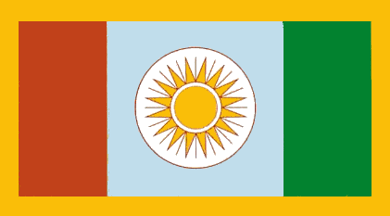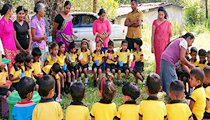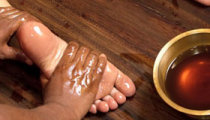Institutions of Department of Ayurveda
|
District |
Provincial Hospital |
Base Hospitals |
Rural Hospitals |
Central Dispensaries |
Drug production unit |
Office - Community Health Medical Officer |
Total |
|
Kandy |
01 |
01 |
04 |
13 |
1 |
04 |
24 |
|
Mathale |
01 |
01 |
05 |
02 |
09 |
||
|
Nuwara Eliya |
01 |
01 |
03 |
5 |
|||
|
01 |
03 |
06 |
21 |
1 |
6 |
38 |
Provincial Ayurveda Hospital
|
No. |
Institution |
Address |
District |
|
1 |
Provincial Ayurveda Hospital |
Pallekele, Kundasale |
Kandy |
Base Ayurveda Hospitals
|
No. |
Institution |
Address |
District |
|
01 |
Base Ayurveda Hospital, Doluwa |
Doluwa, Gampola |
Kandy |
|
02 |
Base Ayurveda Hospital, Mathale North |
Kavudupallale, North Mathale |
Mathale |
|
03 |
Base Ayurveda Hospital, Kothmale |
New Town, Kothmale |
Nuwara Eliya |
Rural Ayurveda Hospitals
|
No. |
Institution |
Address |
District |
|
01 |
Rural Ayurveda Hospital, Panwila |
Ayurveda Road, Panwila |
Kandy |
|
02 |
Rural Ayurveda Hospital, Handaganawa |
Handaganawa |
Kandy |
|
03 |
Rural Ayurveda Hospital, Gelioya |
Gelioya, Gampola |
Kandy |
|
04 |
Rural Ayurveda Hospital, Thenna |
Thenna, Mathela |
Mathela |
|
05 |
Rural Ayurveda Hospital, Nilthandahinna |
Nilthandahinna |
Nuwara Eliya |
Provincial Ayurveda drug production unit
|
No. |
Institution |
Address |
District |
|
01 |
Provincial drug production unit |
Pallekele, Kundasale |
Kandy |

 The Main Objectives
The Main Objectives
 The term ‘Ayurveda’ is referred to different Traditional Medicines- TRM exists in the country. It refers to the
The term ‘Ayurveda’ is referred to different Traditional Medicines- TRM exists in the country. It refers to the  We are actively developing preventive care methodologies and techniques as Preventive Care directly influences the public well-being
We are actively developing preventive care methodologies and techniques as Preventive Care directly influences the public well-being We provide high quality curative care services to children, adults and seniors in Central Province who suffer from curable diseases
We provide high quality curative care services to children, adults and seniors in Central Province who suffer from curable diseases We produce most of the Ayurvedic drugs we use in our Hospitals and Central Dispensaries to ensure the quality and the potency of them
We produce most of the Ayurvedic drugs we use in our Hospitals and Central Dispensaries to ensure the quality and the potency of them The Department of Ayurveda
The Department of Ayurveda